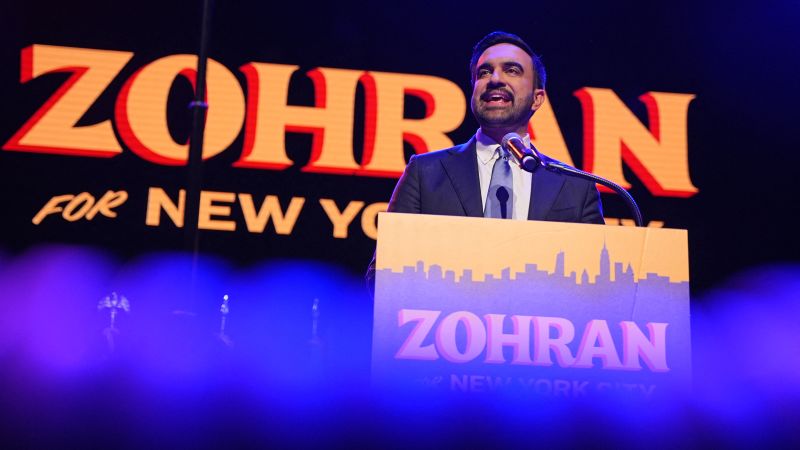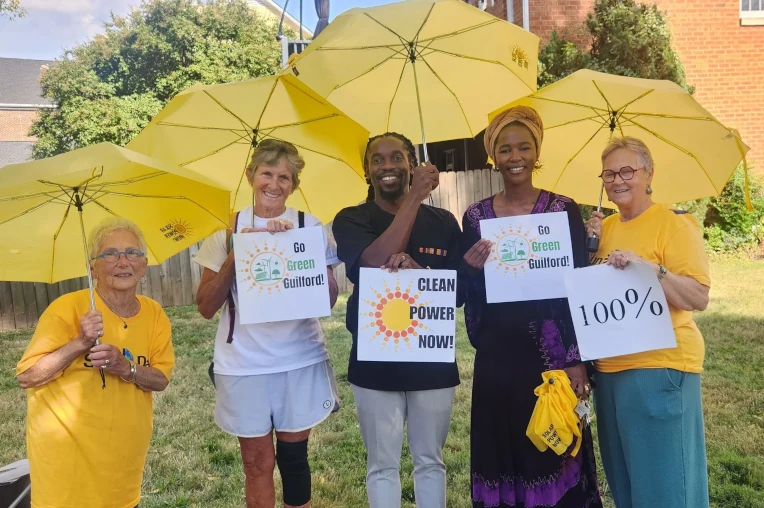Copyright Cable News Network

When Zohran Mamdani made history this week by becoming the first South Asian mayor of New York, he quoted one of modern India’s founding fathers in his acceptance speech and walked off the stage to the sounds of a thumping Bollywood banger. The Muslim son of Indian-origin immigrants, the win is a powerful rebuke of US President Donald Trump, who has sought to drastically curb immigration to the United States, and takes on a greater meaning in a city still contending with the deep scars of post 9/11 Islamophobia. But the aftershocks of his success are also being felt more than 8,000 miles away in cities across the world’s most populous country, where his ascent is both celebrated and criticized. “We have been denied the limelight for a long time,” said 48-year-old Gulfam Khan Hussain from the Indian city of Mumbai. It’s “really nice to see someone from the South Asian … origin has come this far,” artist Tanya Lalwani said. Mamdani’s victory places him at the forefront of a global cohort of diaspora leaders who have shattered political ceilings in recent years. In the US, Kamala Harris reached the second highest seat in government; across the Atlantic, Rishi Sunak became British Prime Minister, while Sadiq Khan secured the London mayoralty. Leo Varadkar led Ireland and Humza Yousaf headed Scotland’s government. Mamdani’s win “really brings the South Asian diaspora to the center of the conversation,” said Sangay Mishra, an associate professor of politics and international relations at Drew University. But Mamdani’s election also amplifies a central tenet of his political identity: his vocal criticism of Indian Prime Minister Narendra Modi’s government and its Hindu nationalist agenda. ‘A blend of Uganda, India, America’ A three-term state assemblyman, Mamdani is a political embodiment of the district he serves: parts of Queens, one of the most ethnically and linguistically diverse regions in New York City. An immigrant from Uganda with Indian parents born in their homeland, he was first raised in post-apartheid Cape Town, South Africa, before his family settled in New York City. Mamdani is the son of Mahmood Mamdani, a renowned professor of post-colonial studies at Columbia University, and Mira Nair, the celebrated Indian filmmaker whose works like “Mississippi Masala,” “The Namesake” and “Monsoon Wedding” explore the diaspora, displacement and identity. He referenced this identity in his victory speech Tuesday. “I am young, despite my best efforts to grow older. I am Muslim. I am a democratic socialist. And most damning of all, I refuse to apologize for any of this,” he said. While speaking, Mamdani went into the archives of Indian history, quoting its first prime minister, Jawaharlal Nehru. He chose the iconic opening of Nehru’s “Tryst with Destiny” speech, delivered on the eve of India’s independence from British rule. And after finishing, the rebellious beat of “Dhoom Machale” (which roughly translates to “Make Some Noise”) from the Bollywood blockbuster “Dhoom,” began to play, prompting the room to erupt into thunderous applause. “When Mamdani quoted (Nehru) he stirred some strings in our hearts,” Khan said. “And Dhoom Machale? What can I say? Bollywood rocks.” Mamdani’s rise as a grassroots democratic socialist assemblyman symbolizes the diaspora’s next chapter: a generation moving beyond integration to transform politics from within. “It means a lot that somebody who is a naturalized citizen and whose identity is a blend of Uganda, India, America … who is also Muslim … is poised to reshape the politics of the Democratic Party,” Mishra, the professor, said. That Mamdani’s political ascent also comes in the wake of a presidential administration that targets immigrants, crackdowns on H-1B visas, and conducts aggressive ICE raids, gives this moment “deeper meaning for South Asians across generations and nationalities,” Mishra added. “South Asians are going to be entering into political conversation in much more central ways.” Criticism of India As the leader of the US’ largest city and financial capital, any mayor of New York is given an outsized role on the world stage. And with Mamdani, that role may clash with a government thousands of miles away. A vocal critic of India’s Modi and his ruling Bharatiya Janata Party (BJP), Mamdani has condemned what he perceives as human rights abuses in his ancestral home. He has criticized the BJPs Citizenship Amendment Act, a controversial law that critics say discriminates against Muslims by making faith a criterion for citizenship, and has disapproved the government’s 2019 revocation of Article 370 of the constitution, which had granted special autonomous status to the Muslim-majority region of Jammu and Kashmir. He has called the Indian prime minister a “war criminal,” in regard to Modi’s controversial role as Chief Minister of Gujarat during which a brutal wave of sectarian violence erupted in 2002. Hindus blamed Muslims for setting fire to a train in an incident that killed dozens of Hindu pilgrims and sought revenge by attacking Muslim-owned homes and stores. More than 1,000 people – mostly Muslims – were killed, according to government figures. Allegations of state complicity were so severe that for years Modi was barred from entering the US. He denied any wrongdoing, and the Supreme Court of India cleared him of complicity. For many of Modi’s supporters, Mamdani’s rhetoric is seen as a malicious attack on the country’s majority religion. “Mamdani is a rabid liar,” wrote a BJP national spokesperson, Sanju Verma, on X. “Mamdani is Hinduphobic bigot.” Another BJP politician, Kangana Ranaut, said Mamdani “sounds more Pakistani than Indian,” referring to India’s longtime rival. “Whatever happened to his Hindu identity or bloodline and now he is ready to wipe out Hinduism,” she wrote. However, plenty of Hindus disagree. “Zohran and his campaign have moved beyond symbolic representation of South Asian Americans to actually addressing the concerns that South Asian Americans raise,” said Ria Chakrabarty, Senior Policy Director for Hindus for Human Rights, a non-profit that advocates for civil rights in South Asia and North America. The Hindu advocacy organization opposes Modi’s version of Hindu nationalism, believing it conflicts with the religion’s core values of pluralism and justice. When a prominent American politician condemns events like the 2002 Gujarat riots, it directly empowers activists on the ground in India, Chakrabarty said. “They know the Indian government is very responsive to international pressure, which permits activists to develop more tools that an international politician or journalist can use to exert pressure on the government,” she said. Yet, on the ground in India, the mood has been harder to judge, though newspapers celebrated his victory with headlines about how he is New York’s first mayor of Indian descent. For those who do know him, the optics are less about political pressure and more about simple, unadulterated pride. This wave of joy was seen online, where some claimed his victory as India’s own. “We are a country of leaders and Mamdani’s win is another feather in India’s already colorful cap,” said Khan from Mumbai. “Whenever the challenge arises we give the world a Gandhi, a Sunak, a Mamdani … And this is just the beginning.”



